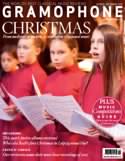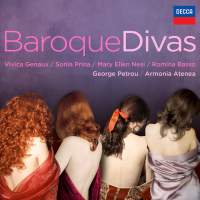Texte paru dans: / Appeared in: |
|
|
Outil de traduction (Très approximatif) |
|
|
Reviewer: Richard Wigmore
Decca needs to sell copies, of course. Just don’t be deceived by the disc’s title and the coyly titillating cover. With the odd exception, the Baroque singers celebrated here are not prima donnas but star castratos, from Farinelli and Caffarelli downwards. As you’d expect, there are coloratura fireworks aplenty, most extravagantly in an aria by Veracini fashioned to showcase Farinelli’s stupendous virtuosity. Musically, this strikes me as little more than an extended circus trick. Alaskan mezzo Vivica Genaux is certainly equal to its faintly grotesque demands, even if the ‘long divisions’ (and they don’t get longer than this) are dispatched with more than a hint of machine-gun autopilot. But I enjoyed without reservation Genaux’s expressive singing of a lyrical aria for the penitent hero of Hasse’s Solimano, and her tenderness and simplicity in ‘Le belle immagini’ from Gluck’s Paride ed Elena.
Belonging to a later generation and aesthetic than the other composers on the disc, Gluck is the odd man out here, even more so with Clytemnestra’s scene from his Parisian opera Iphigénie en Aulide (the French proscribed castratos as an ‘offence against nature’). Still, if her French declamation is hardly idiomatic, MaryEllen Nesi impresses here with singing of almost unhinged fury. Of the three mezzos, Nesi has the brightest edge to her tone, and is heard to splendid effect baying for vengeance in a coloratura aria for Faustina Bordoni from Bononcini’s Astianatte – the opera in which Bordoni and her soprano rival Cuzzoni scandalised London with their fisticuffs. It’s frustrating that the rather rambling booklet-note gives no context for this or any other of the arias – a serious blot on Decca’s production.
Although some of her music sounds a shade low for her, Romina Basso brings warm, smooth tone and immaculately even coloratura in arias from Vivaldi’s Giustino (where her da capo embellishments are a model of heightened expressiveness) and Siroe by the obscure Domenico Natale Sarro. Sonia Prina is the one singer billed as a contralto, and shows why in arias by Hasse and Vinci composed for the castrato Nicolò Grimaldi. In the gloomy Hasse aria, Prina conveys horror and remorse with a numb, blanched tone, while Vinci’s aria of triumph, with priapic horns, elicits a trumpeting swagger. All the while George Petrou directs his Athens-based period band with terrific pizzazz, unafraid to go over the top in music that is so often about excess. |
|
|
|
|
|
Cliquez l'un ou l'autre
bouton pour découvrir bien d'autres critiques de CD |
|




